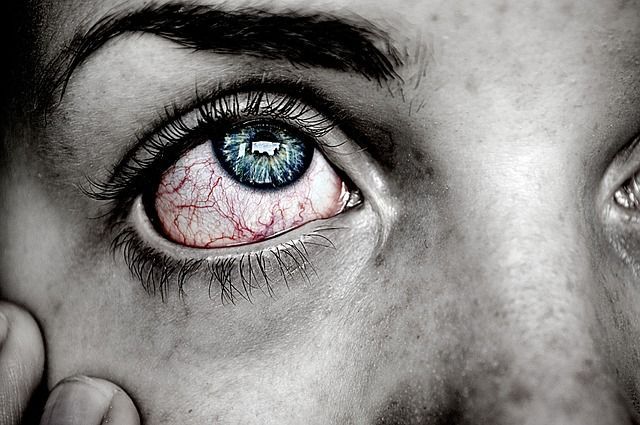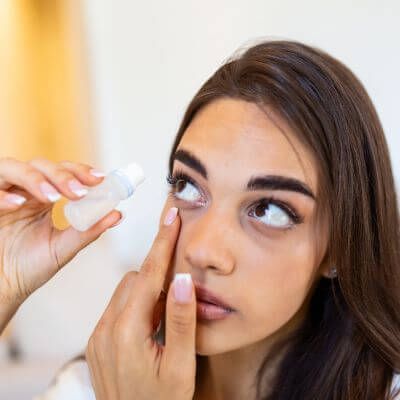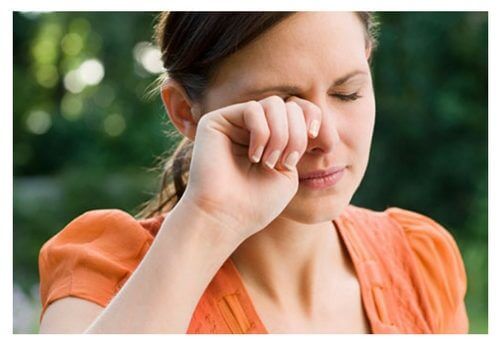Are Your Eyes Irritated From Allergies Or Dry Eye Syndrome?
 With East Tennessee’s allergies kicking back into gear this spring, many people are wondering how to tell the difference between two of the most common eye related issues—ocular allergies and dry eye. If your eyes are red, itchy, burning, or gritty-feeling, it’s important to get to the root cause.
With East Tennessee’s allergies kicking back into gear this spring, many people are wondering how to tell the difference between two of the most common eye related issues—ocular allergies and dry eye. If your eyes are red, itchy, burning, or gritty-feeling, it’s important to get to the root cause.
While some symptoms of dry eye and allergies are similar, there are clear distinctions between how to treat the two eye conditions. And actually, you can suffer from both ocular allergies and dry eye simultaneously. Let’s take a closer look at both conditions:
Ocular allergies
Environmental factors like pollen, dust, mold, cat dander, etc. can affect our eyes as well as make us sneeze or itch. When the eyes are affected by allergies they often become red or watery, but the hallmark symptom of allergies is itchiness. Puffy eyelids may be a symptom as well.
If you’re allergic to pollen, try to avoid spending time outdoors if possible when pollen counts are highest, which is usually mid-morning and early evening. If you are outside, wear wrap-around sunglasses to help protect your eyes.
Keep your windows in your home and car closed and use air conditioning. Be sure to use air conditioning filters that are graded high enough to trap allergens like pollen, dust, and mold.
Dry Eye Syndrome
Dry eye sufferers don’t produce or maintain sufficient natural tears to keep their eyes lubricated and comfortable. While the symptoms of dry eye are similar to ocular allergies, the treatment is different. In fact, antihistamines and decongestants that are designed to alleviate allergy symptoms can actually make dry eyes feel worse.
Treatments
Artificial tear drops typically help both ocular allergies and dry eyes by temporarily washing allergens from the eye and adding moisture. But finding the right drop may take some time. Drops are designed to treat different symptoms, and the preservatives in some artificial tear drops irritate some people’s eyes.
Decongestant eye drops that include an antihistamine may relieve itchiness from allergies, but you should not use these types of eye drops for more than two to three days. Continued use can actually increase your symptoms.
Be aware that symptoms such as redness, stinging, itching, and burning are found in a number of other eye disorders, not just ocular allergies or chronic dry eyes. It’s best to not try to self-diagnose the cause of your eye irritation. If your eyes are persistently dry, red, itchy or watery, it’s time to visit an ophthalmologist at Baptist Eye Surgeons who can help you relieve your symptoms. Scheduling an appointment with your eye doctor is the only way to accurately determine the underlying cause.
With offices in Knoxville, TN and Morristown, TN, Baptist Eye Surgeons is an ophthalmological practice dedicated to providing quality eye care to patients whose needs range from relief from dry eye to routine comprehensive eye examinations to complex eye surgeries. To learn about our specialities and our doctors, visit our website . Call us at 865-579-3920 for more information, or schedule an appointment online.


MORRISTOWN
SEVIERVILLE
TENNESSEE VALLEY - LASER CENTER
TENNESSEE VALLEY - EYE CENTER



